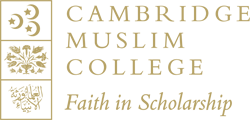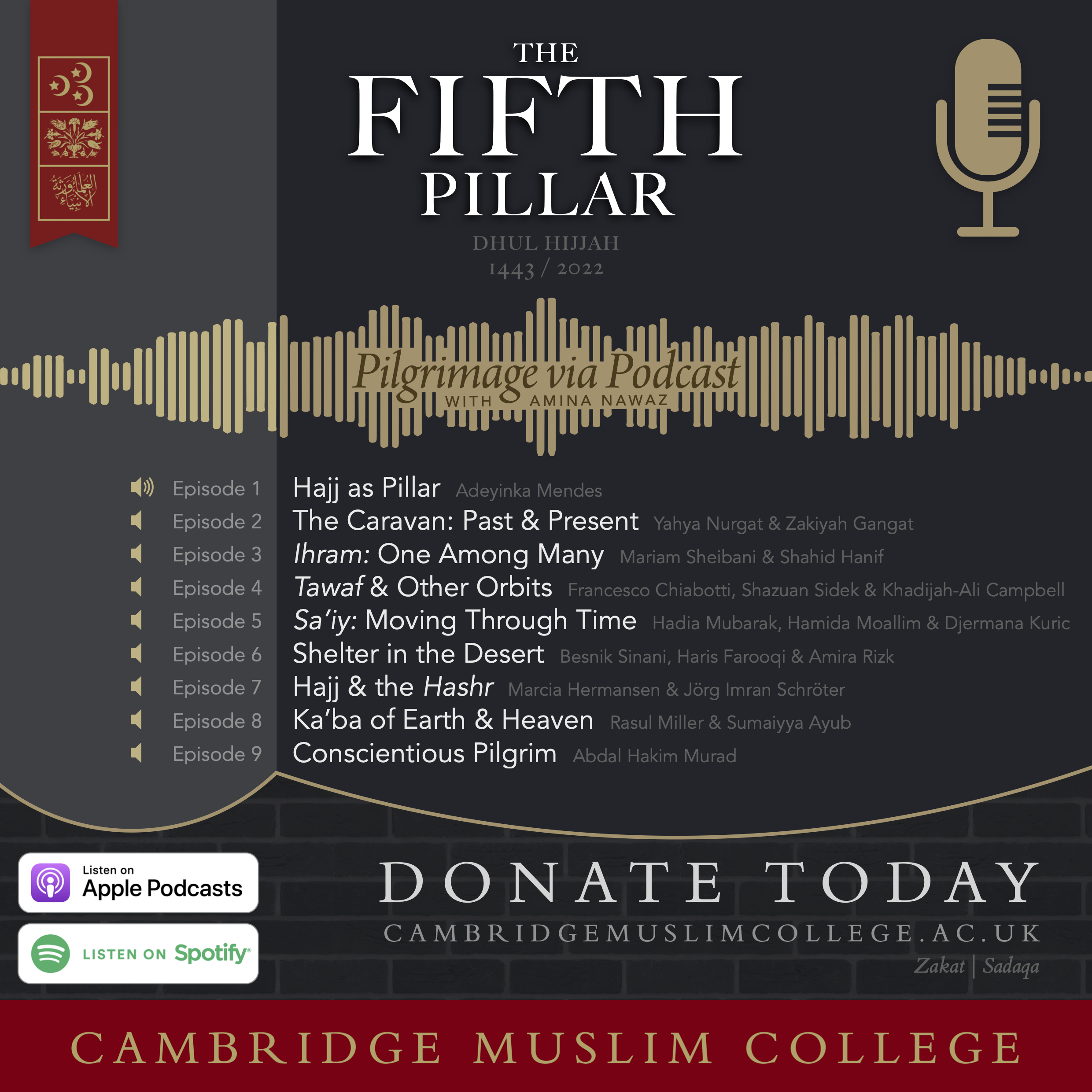Each year, during the first ten days of Dhul Hijjah, we embark on a pilgrimage exploring the profound meanings of Hajj
This year’s programme is a thematic podcast which enriches and adds depth to users’ reflections on the hajj and its place in Muslim thinking and practice. By focussing primarily upon audio content, we aim to prioritise imagination within the user experience, offering a narrative-rich exploration of the theme, ‘Gathering’.
Hajj. This annual pilgrimage draws millions of Muslims from around the world to the Holy city of Mecca. It is the fifth pillar of Islam, after faith, prayer, fasting and charity.
Welcome to a third season of ‘The Fifth Pillar’ with our host, Amina Nawaz. This virtual ‘pilgrimage via podcast’, marks a shift from the past two years from our YouTube lecture series that are also available on this podcast.
Our theme this year ‘The Great Gathering’, in which we reflect upon the spiritual gifts of the Hajj in the Islamic tradition and within the larger human story of spiritual pilgrimage.
In each episode, scholars and pilgrims from all different parts of the world will draw out both continuity and divergence within the past and present, and considering how this great pilgrimage blurs time and space in theologically fascinating and spiritually enriching ways.
Join us in the first nine days of the Holy month of Dhul Hijja as we celebrate the season of pilgrimage together, reflecting upon the journey of Hajj, its rituals and deeper meanings.
Programme
In this trailer, our podcast host, Dr Amina Nawaz introduces our pligrimage via podcast for the first 9 days of Dhul Hijjah.
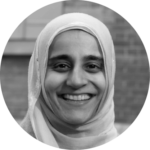
Amina Nawaz
Amina Nawaz is a postdoctoral researcher at the Chair of Islamic Doctrine at Center for the Islamic Theology, University of Tuebingen. Her doctoral research examined the sixteenth century devotional writings of Morisco communities in Spain. Her current research interests include developing materials for teaching Islam, (both digital and print), Muslim devotions and Muslim ‘home’ and ‘belonging’ narratives, both historically and in contemporary contexts. She holds a PhD from the University of Cambridge and is a former Visiting Lecturer at Cambridge Muslim College.
Hajj is unique among the pillars as the one which is entirely part of a gathering. What are the individual and communal elements of this pillar? What are the mythologies of pilgrimage in human history and Islam specifically? What are the spiritual consequences of this practice as specifically, intentionally communal?
 Adeyinka Mendes
Adeyinka Mendes
Adeyinka Mendes is the founder of The Nibras Foundation, the Bilal Spiritual Center for Peace and the Arts, as well as co-founder of the African-American Healing, Ancestry, and Development (AHAD) Collective. He speaks nationally and internationally on Quranic Spirituality, Youth and Adult Rites of Passage, Peace-building, and the healing wisdom of Black Muslim cultures and civilizations. His research interests include the political implications of mystical poetry, the history and adaptations of Islam in Black Africa and the African diaspora, and Muslim-led anti-slavery revolts in the Americas.
The gathering of the Hajj begins with the movement towards the Holy City of Mecca, as throngs of people travel, mostly in groups, to undertake the pilgrimage rites. What has this movement of persons looked like in history? How has it changed over time? What features of the ‘caravan’ remain despite the many changes? What do we gain or lose through time? What patterns keep repeating?
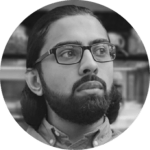
Yahya Nurgat
Yahya Nurgat is a historian focusing on the early modern Ottoman world. His resarch interests include the history of Ottoman Islam, pilgrimage, and sacred space, as well Islamic law and manuscript cultures. He holds a PhD from the University of Cambridge and is an incoming research fellow at Sabancı University, Istanbul, where he will explore a diverse set of questions surrounding restorations of the Ka’ba in the early modern Ottoman world.
 Zakiyah Gangat
Zakiyah Gangat
Zakiyah Gangat is the co-founder and operations manager of AlFatihah Learning Academy. She is passionate about empowerment through sacred rooting, growth through learning and building wholesome communities. She is a CMC alumna of the Diploma in Contextualised Islamic Studies.
The ‘entering into the sacred’ or the donning of the ‘ihram’, removes worldly distinctions from pilgrims. In other words, each person leaves part of their individuality behind, and becomes a body in the crowd. What is the symbolism of the ihram and why is it essential to this ritual? What did the Prophetic practice of ihram look like and how has it been maintained? What does the ihram tell us about the individual/communal aspects of the Hajj and the concept of being alone, in the crowd?
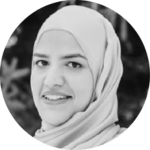 Mariam Sheibani
Mariam Sheibani
Mariam Sheibani is Assistant Professor in History at The University of Toronto and part time Lecturer at Cambridge Muslim College. Her research interest include medieval Islamic intellectual and cultural history, with a focus on the theory and practice of Islamic law. She has studied with Muslim scholars and conducted research in Turkey, Jordan, Egypt, North America, the UK, and West Africa. She holds a PhD in Islamic Thought from the Department of Near Eastern Languages and Civilizations at the University of Chicago.
 Shahid Hanif
Shahid Hanif
Shahid Hanif was born and raised in Dundee, Scotland. After completing his PhD from the University of Glasgow, Shahid spent a short time living in Damscus, from where he decided to make Hajj at the age of 29. Shahid is the Managing Director of a not for profit research Institute. He currently lives in Canada with his wife and three children after 16 years living in Cambridge, UK.
The ‘circumambulation’ of the Ka’ba is one of the most famous rituals of the Hajj. Why do Muslims perform the walk in counter clockwise circles around the ka’ba and what significance does this have? What are the significance of spheres and circles in Islamic cosmology? How does this enlarge our understanding of ‘gathering’ in the Hajj?
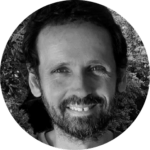 Francesco Chiabotti
Francesco Chiabotti
Francesco Chiabotti is an Associated Professor for Islamic Studies and Medieval History at Institut National des Langues et Civilisations Orientales. He holds a PhD in Islamic Studies from the University of Aix-Marseille.
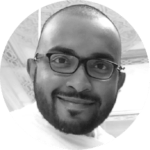 Shazuan Sidek
Shazuan Sidek
Shazuan Sidek lives in Kuala Lumpur, Malaysia where he works as a compliance executive for a Malaysian shipping company. He holds a Bachelor of Laws (hons) and Masters in Business Administration from the International Islamic University Malaysia. He is also a member of the Malaysian Bar as an Advocate & Solicitor of the High Court of Malaya. Apart and a member of the Selangor Muslim League, a registered NGO in Malaysia and a committee member of Embara Nusantara.
 Khadijah-Ali Campbell
Khadijah-Ali Campbell
Khadijah-Ali Campbell is the Dean of Student Well Being at The Brookwood School in Boston. She was born and raised in Philadelphia, PA and lives in Boston with her husband and two children. While working at Phillips Exeter Academy for eight years as Muslim Student’s Advisor she was able to make Hajj at 27 with her husband. When Khadijah is not at work or caring for family she is running a mobile coffee cart business called “Laha Cafe.”
One of the key elements of the Hajj is the interplay of time between past (Adam and Abraham, Hajar, Muhammad) and present. The Sa’iy is one of the most poignant communal enactments of this time and space bending that takes place in Hajj. What does this walk between the two hills reveal about the nature of time and space in the hajj?
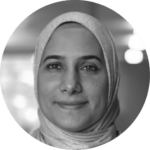 Hadia Mubarak
Hadia Mubarak
Hadia Mubarak is an Assistant Professor of Religion at Queens University of Charlotte. She holds a PhD in Islamic Studies from Georgetown University, where she specialized in modern and classical Qurʾanic exegesis, Islamic feminism, and gender reform in the modern Muslim world. She currently serves as a scholar-in-residence with the Muslim Community Center of Charlotte and a scholar fellow with the Institute for Social Policy and Understanding.
 Hamida Moallim
Hamida Moallim
Hamida Moallim was born and raised in London, United Kingdom. She graduated with a BA in Arabic from School of Oriental and African Studies. She currently resides in Germany with her husband, daughter and two cats.
 Djermana Kurić
Djermana Kurić
Đermana Kurić lives in Sarajevo, Bosnia and works as a freelance researcher, consultant, translator and interpreter. She has spent the last five years working as an Adviser on Combating Intolerance and Discrimination against Muslims at the Organization for Security and Co-operation in Europe in Poland. She holds a BA in English language and literature, and an MA in Religious Studies from the Center for Interdisciplinary Postgraduate Studies from the University of Sarajevo. She is currently persuing a PhD on Bosnian Muslim women’s ways of navigating their religious life from WW2 onwards.
In addition to accessing great spiritual heights, part of the Hajj involves the practical necessities of travelling and living with millions of other persons. How have people ‘lived together’ in the hajj and what can we learn about the nature of gathering in Islam through this experience? In the heat and exposure of the desert rituals, where and how does one find shelter?
 Besnik Sinani
Besnik Sinani
Besnik Sinani is a postdoctoral research fellow at the Chair for Hadith Studies and Prophetic Traditions at the Center for Islamic Theology, Tübingen University. Prior to his current position, he was a research fellow at the Leibniz-Zentrum Modern Orient in Berlin, conducting research on the emergence of post-Salafism. He holds a PhD from Freie Universität Berlin and is currently conducting research on modern Muslim prophetology and sira writing.
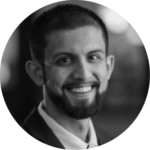 Haris Farooqi
Haris Farooqi
Haris Farooqi works in Data Engineering and is a student of various US scholars. He has been involved in local Muslim communities as a youth coordinator and advisor. He currently lives with his wife in New Jersey, USA.
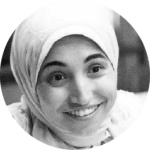 Amira Rizk
Amira Rizk
Amira Rizk lives in Cairo, Egypt and is a Marketing Manager in an FMCG corporation and a Youth Coach working on empowering adolescents with communication and interpersonal skills. She graduated from the American University in Cairo with an integrated Marketing Communication Specialization and a Psychology & Business minor.
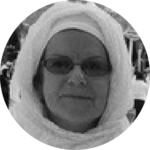 Marcia Hermansen
Marcia Hermansen
Marcia Hermansen is Director of the Islamic World Studies program and Professor in the Theology Department at Loyola University Chicago where she teaches courses in Islamic Studies and the academic study of religion. She holds a PhD in Arabic and Islamic Studies from the University of Chicago and has numerous authored and co-edited books.
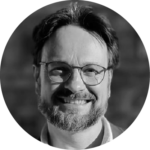 Jörg Imran Schröter
Jörg Imran Schröter
Jörg Imran Schröter is an educator and scholar of relgious education in Germany. He holds a PhD in education and is currently a university lecturer in Freiburg Germany.
Our testimony acknowledging the divinity of Allah was during the first of gatherings. In this episode, Rasul Miller and Sumaiyya Ayub explore the physical space of the earthly ka’ba and the heavenly, angelic realms, to understand the ka’ba in time and space.
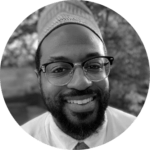 Rasul Miller
Rasul Miller
Rasul Miller is an Assistant Professor of History at the University of California, Irvine. His research explores the histories of Black Muslim communities in the Atlantic world, Black radicalism and its impact on social and cultural movements in the twentieth century U.S., Black internationalism, and West African intellectual history. Rasul has studied traditional Islamic sciences according to the Maliki school with teachers in the US and Senegal. He holds a PhD in History and Africana Studies from the University of Pennsylvania and his BA in Economics and African & African American Studies from Duke University.
 Sumaiyya Ayub
Sumaiyya Ayub
Sumaiyya Ayub was born and raised in New York, and is a wife and mom of two toddlers. She graduated from Queens College with a degree in Political Science. When she’s not toddlering, she is writing or reading.
Like so many aspects of modern life, the Hajj is unfortunately another instance where human activity causes detrimental impacts upon our environment. In this episode, Abdal Hakim Murad explores ways we can imagine the Hajj of the present and future which enables conscientious commitment to safeguarding our natural world and our holy cities, as he recalls the changes that have taken place since his own pilgrimage.
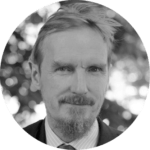 Abdal Hakim Murad
Abdal Hakim Murad
Abdal Hakim Murad is the Dean of the Cambridge Muslim College. He was educated at Cambridge, Al-Azhar and London universities. He is currently the Shaykh Zayed Lecturer of Islamic Studies in the Faculty of Divinity at Cambridge University and Director of Studies in Theology at Wolfson College. He has published and contributed to numerous academic works on Islam, including as Director of the Sunna Project, and is a leading figure in inter-faith activity, notably as one of the signatories to the Common Word statement. He is well-known as a contributor to BBC Radio 4’s ‘Thought for the Day’.
